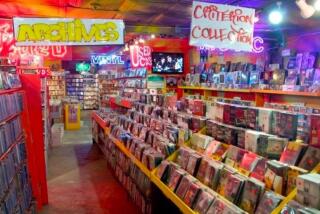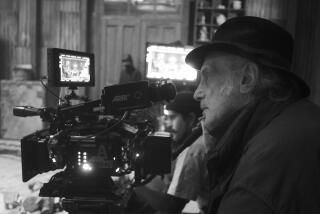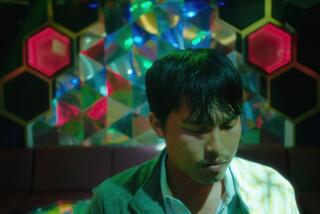Cannes 2017: Six questions for Claude Lanzmann, who made a new film about North Korea

Claude Lanzmann is a legendary documentarian, most famous for his nine-hour oral history “Shoah.”
Now 91, the French filmmaker might be expected to slow down or coast on his laurels. Instead, he keeps going. Several years ago, he wrote a memoir, “The Patagonian Hare,” and at the Cannes Film Festival this year he unveiled “Napalm,” a documentary that takes the director into the forbidden land of North Korea.
The movie is part travelogue, as Lanzmann films at places like a North Korean military museum, offering an unfiltered look at the country’s propaganda machine. It is also part personal history — the second half puts the director in front of the camera as he tells a long personal story about a romantic encounter he had, on a visit in 1958, that goes to the issue of sexual repression in the country.
The Times recently spoke with Lanzmann at Cannes.
So, the most obvious questions first: Why North Korea, and why now?
It was in me a long time this idea — it marked me. I wrote the book where I told the story [of the romantic encounter], but many people don’t read — they go see movies. So I did this. The challenge was how to make it there. A Spielberg could have told the same story in fiction and chosen another city, another river, to shoot it. And for me, this felt like a betrayal.
Shooting in North Korea is indeed very difficult. You had officials watching you as you made your way even to benign places like a military museum and a martial-arts academy. How did that constrain you?
The government was very suspicious, and they were always near me. I was afraid, because they were holding me strongly. But I think I found ways to get around that. I wanted to make a film where the words are images and the images are words; I wanted to explore the dichotomy between documentary and fiction.
You have these great images of North Korea’s leaders early in the film on a plaza there, and you combine it with notions of mortality and the “standstill” that the country has been in for more than 60 years. Can you explain that a little more?
I think there is a desire for eternity. That’s why the government stopped the past, and there are these giant statues, so they cannot die. When Kim Jong-il died, the reaction in the streets was astonishing. Their struggle against death is astonishing. You see it in every civilization, a solution to cope with this terrible situation. This is how they do it.
Your film aims to evoke sympathy for North Korean people, particularly by showing some graphic images of North Korean deaths in the Korean War. Why was that a priority for you?
North Korea has a history of terrible destruction. [Douglas] MacArthur wanted to repeat Hiroshima. It’s very clear this is the greatness of [Harry] Truman, to fire MacArthur because he knew the consequences. The movie is not a complete stranger to ‘Shoah’ because of what happened [during the Korean War]. The scene on the bridge [from the story] when the police surround me — it is like ‘Shoah,’ where there is a return to the place where something happened.
Even as we speak, there are reports of missiles being fired, of nuclear tests being conducted, by the North Korean military. Did you come away with any insights on the current political situation?
I am not a political filmmaker. I could have shown the ‘Axis of Evil,’ as our friend [George W.] Bush called them. I try to avoid government and politics completely. They [the people of North Korea] are very human, and when they told me their own stories of war, I saw people who had been real heroes and many thousands of dead people. We are one mankind.
Most people would reach your age and place in the film world and say, “I don’t need to keep working.” Why don’t you say that?
It required a lot of chutzpah to tell a story at my age — I’m not a young man and I cannot change my face. There are all these impediments. I don’t say I succeeded, but I don’t say I failed.
See the most-read stories in Entertainment this hour »
Twitter: @ZeitchikLAT
More to Read
Only good movies
Get the Indie Focus newsletter, Mark Olsen's weekly guide to the world of cinema.
You may occasionally receive promotional content from the Los Angeles Times.







